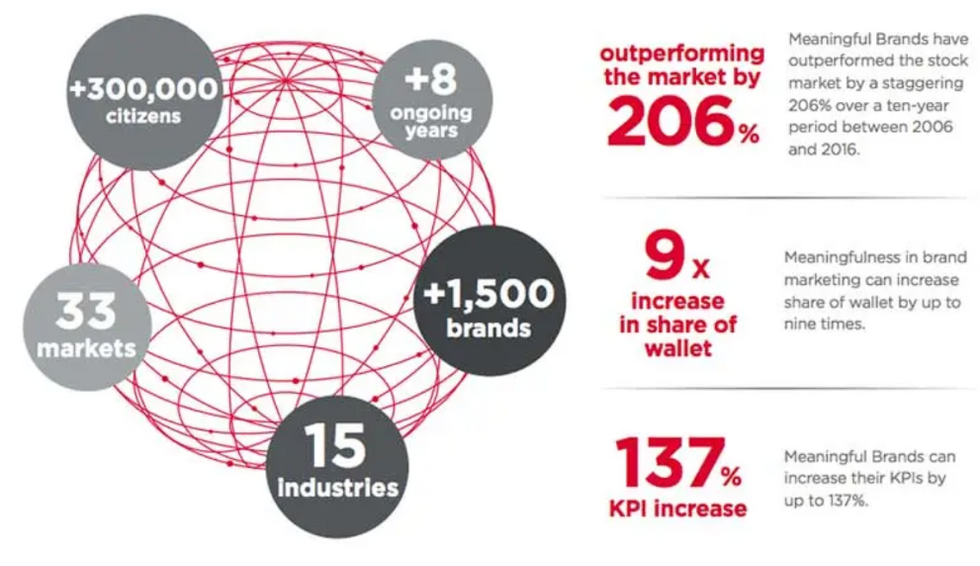Purpose-driven brands impact profitability, help grow sales, improve brand loyalty, and provide a competitive advantage—all of which are critical for making a difference in the competitive marketplace today.
Impacts Profitability

Havas Meaningful Brand Report published a 2021 report with several key findings.
- Meaningful brands (those with an active purpose) outperformed the stock market by 206% over the last 10 years.
- They also found that meaningful brands increased their KPIs by 137% compared to those operating without a purposeful meaning.
- Meaningfulness in brand marketing can increase share of wallet by up to nine times.
Helps Grow Sales

Accenture Strategy's global survey of nearly 30,000 consumers across 35 countries found that brand purpose does help drive growth.
- 63% of consumers prefer to purchase from purpose-driven brands.
- 78% of Americans would tell others to buy products from a purpose-driven company.
- 66% of Americans would even switch from a product they typically buy, to a new product from a purpose-driven company.
Improves Brand Loyalty

Want brand loyalty? Purpose-driven brands cultivate strong relationships with customers as they know they can act as powerful brand loyalists.
New Accenture Strategy research finds:
- 79% of Americans say they would be more loyal to a purpose-driven company.
- 73% would be likely to defend a purpose-driven company if people spoke badly of it.
- 70% would be proud to be associated with a purpose-driven company.
Provides A Competitive Advantage

Executives agree that leading with a purpose provides a competitive advantage according to a 2020 Porter Novelli Executive Purpose Study that examines business leaders' opinions on purpose-driven leadership.
- 89% of business leaders believe companies that lead with purpose have a competitive advantage in today's marketplace.
- 85% agree being a purpose-driven company drives profit.
- 88% believe purpose-driven companies are differentiated from their peers and competitors.
Purpose-driven brands have higher market share gains, grow faster than their competitors, achieve continued brand loyalty, and increase customer satisfaction and overall positive results. In this age where consumers value authenticity and transparency, they can quickly spot when companies are not delivering on their brand purpose. Those companies that fail to develop a brand purpose may survive in the short term but will struggle to compete successfully in the long term.




